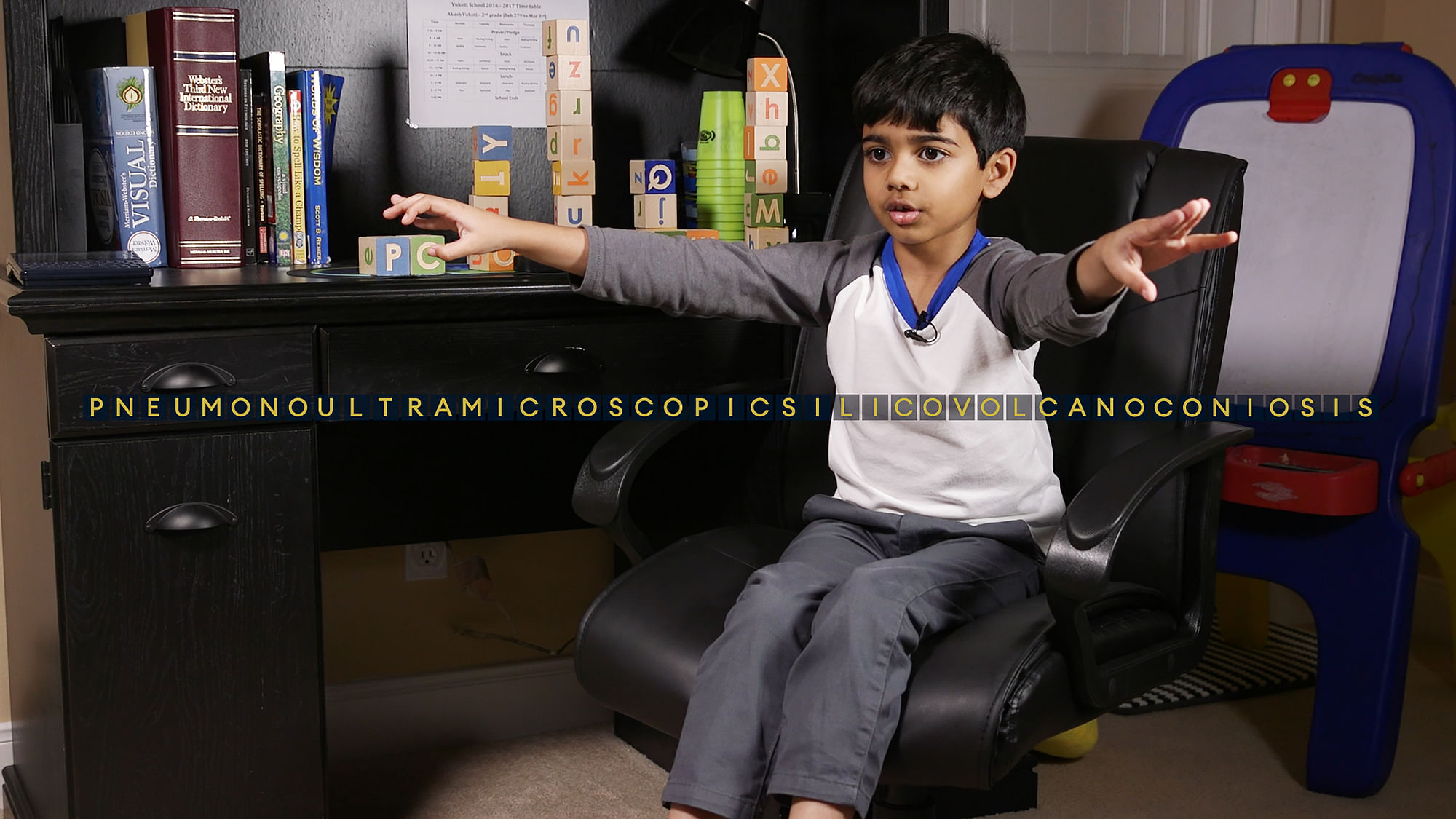In Netflix’s ‘Spelling the Dream’, Indian-American Kids Dazzle
‘Spelling The Dream’ will start streaming on 3 June.

Note: This review may contain spoilers
Personally, I do not find the idea of spelling competitions, or any quiz competitions, attractive. But Netflix’s Spelling The Dream, which will start streaming on 3 June, had me crying buckets by the end of it.
Directed by Sam Rega, the 1.5 hour-long documentary delves into the cultural and social phenomenon of spelling bees in the USA - particularly the Scripps National Spelling Bee competition which happens to be dominated by Indian-Americans. Year after year, Indian-American children take home the prestigious trophy. If they fail, they come back undeterred the following year.
Rega starts off by establishing the relevance of the topic, before deep-diving into the lives of four children and their individual spelling bee journeys. Statistical information and interviews with past winners (who are adults by this point) help set up the foundation for what’s about to follow. It is undoubtedly fascinating but Rega’s writing goes beyond that. He doesn’t just want us to experience the popularity of these competitions; Spelling The Dream is his attempt at trying to trace the roots of this phenomenon.
The documentary is filled with interesting insights that help you understand the building blocks of the phenomenon. For example, one of the experts in the film explains how televising the Scripps National Spelling Bee was a major milestone because it was no longer something you just read about in the papers; now you could experience the thrill. Moreover, the fact that it was televised on ESPN gave the competition unprecedented prestige and respect. Indian-Americans, who were not traditionally associated with being ‘athletic’, now had the chance to be on ESPN. And to the handful of them who did get that opportunity, it was a big deal.
In Spelling The Dream, Rega tries to deconstruct the phenomenon without giving in to baseless stereotypes. Through a deeply personalised gaze, he tries to spot trends and factors that could have possibly led to the popularity of spelling competitions within the Indian-American community in the USA. Alas, he fails. His findings aren’t convincing enough. But that disappointment doesn’t last long because the real stars of the documentary are the four children as they prep for the ultimate spelling competition.
For many Indian-American children, these spelling competitions became an avenue to feel less alienated. It gave them a sense of belongingness and purpose. For their parents, many of whom migrated as adults in quest of a better life for their children, these spelling competitions are a materialisation of their own hopes and dreams.
Rega’s writing incorporates these personal stories very delicately. He even addresses the flip side of the phenomenon - one that is brimming with xenophobia and ‘othering’ of these first-generation Indian-Americans. He tries to be empathetic but for all his romanticism, he forgets to fully address one important concern: the unconscious pressures that come with being a part of a system that’s so competitive.
Getting into a highly competitive zone like this can’t be easy. Especially for such young kids. The competitions are not just an intellectual activity. They go beyond just memorising words, their spellings, pronunciations and origins. A child is expected to not just put in the weekly hours but also perform well publicly.
So while we do get an objective glimpse of the demands of a competitive lifestyle like this, we’re still left wondering: what about the kids who, though passionate about spelling, might not be able to handle the pressures of it?
Spelling The Dream tries hard to give us a hunky-dory perspective of the entire industry. The children are adorable, their commitment and dedication is something to strive for, and their enthusiasm infectious. But what happens when they are forced to face rejection and failure - two concepts they might not be as familiar with - in public? How do young minds cope? Is there a mechanism in place for this?
(At The Quint, we are answerable only to our audience. Play an active role in shaping our journalism by becoming a member. Because the truth is worth it.)